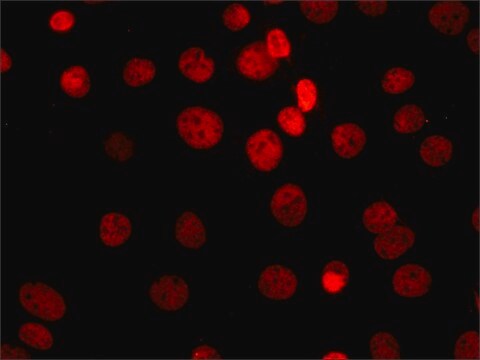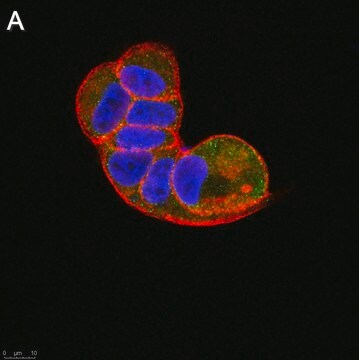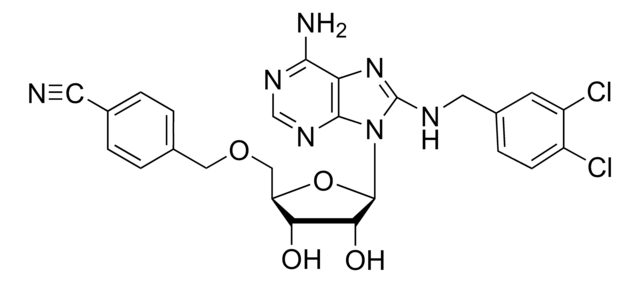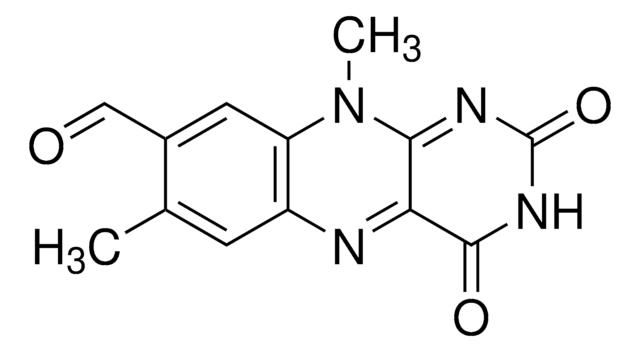5.33761
HSF1 Activator HSF1A
Synonym(s):
HSF1 Activator HSF1A, Heat Shock Factor 1 Activator, HSF1A
About This Item
Recommended Products
Assay
≥98% (HPLC)
Quality Level
form
solid
manufacturer/tradename
Calbiochem®
storage condition
OK to freeze
protect from light
color
off-white
solubility
DMSO: 50 mg/mL
storage temp.
2-8°C
InChI
1S/C21H19N3O2S2/c1-2-16-10-12-18(13-11-16)28(25,26)23-21-15-19(20-9-6-14-27-20)22-24(21)17-7-4-3-5-8-17/h3-15,23H,2H2,1H3
InChI key
KJTITGSAONQVPY-UHFFFAOYSA-N
General description
Please note that the molecular weight for this compound is batch-specific due to variable water content. Please refer to the vial label or the certificate of analysis for the batch-specific molecular weight. The molecular weight provided represents the baseline molecular weight without water.
Biochem/physiol Actions
HSF1
Warning
Reconstitution
Other Notes
Neef, D.W., et al. 2010. PLoS Biology.8, e1000291.
Legal Information
Storage Class Code
11 - Combustible Solids
WGK
WGK 3
Flash Point(F)
Not applicable
Flash Point(C)
Not applicable
Certificates of Analysis (COA)
Search for Certificates of Analysis (COA) by entering the products Lot/Batch Number. Lot and Batch Numbers can be found on a product’s label following the words ‘Lot’ or ‘Batch’.
Already Own This Product?
Find documentation for the products that you have recently purchased in the Document Library.
Our team of scientists has experience in all areas of research including Life Science, Material Science, Chemical Synthesis, Chromatography, Analytical and many others.
Contact Technical Service







